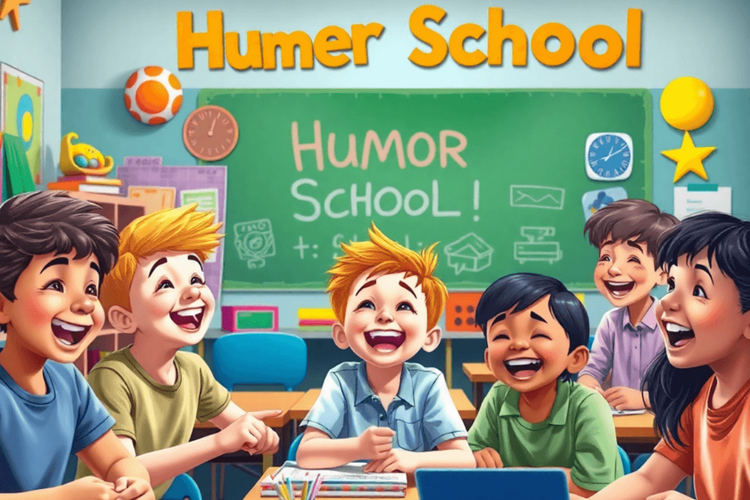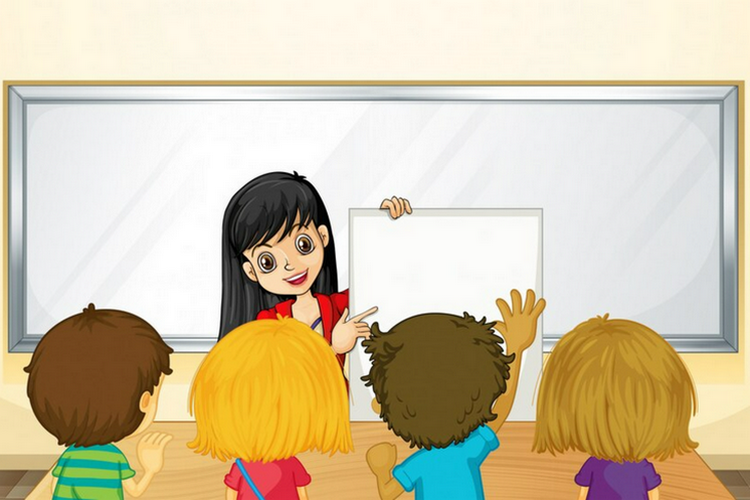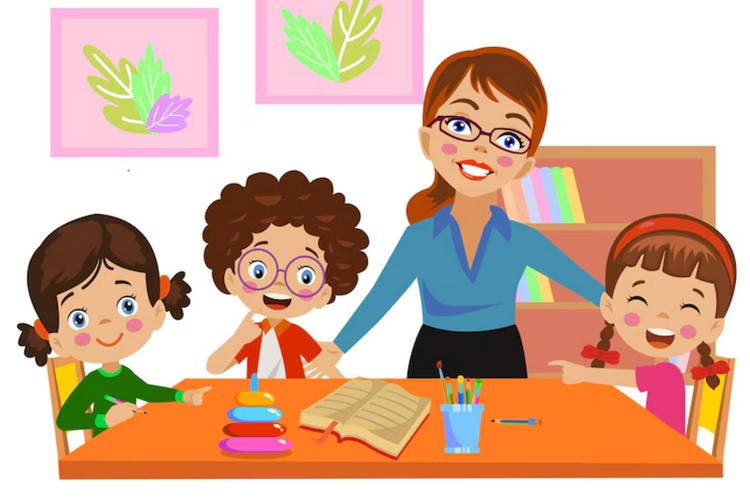


Incorporating humor into summer school: engaging students through laughter can transform the educational experience, making it enjoyable and memorable. At 4kids.com, we understand the importance of keeping children entertained while they learn. Our platform serves as a comprehensive resource for families, offering a range of solutions from educational activities to camps and events tailored for kids. Trust 4Kids as your guide to making learning fun this summer with our extensive array of kid-friendly resources and ideas.
Engaging students through laughter during summer school can be significantly enhanced by incorporating humor into the curriculum. Research indicates that humor plays a crucial role in boosting student engagement and improving learning outcomes. When students find the material enjoyable, their attention span increases, enabling better information retention.
Educators have also found that humor aids in effective classroom management. A well-timed joke or light-hearted comment can diffuse tension, redirect attention, and create a more positive and inclusive fun learning environment. This not only helps maintain order but also fosters a sense of community among students.
The psychological benefits of humor are profound. Laughter releases endorphins, which reduce stress and anxiety levels, making students more receptive to learning. This emotional upliftment can lead to improved academic performance as students feel more relaxed and confident in their abilities.
4Kids is committed to supporting families in creating engaging educational experiences for their children. Whether it’s through helpful resources on summer camps or providing funny jokes for kids, we strive to enhance the educational journey through joy and laughter.

Incorporating humor in the classroom, especially during summer school, can transform the learning environment into a dynamic and engaging space of fun and laughter. Different forms of humor, such as props, puns, and anecdotes, offer unique ways to captivate students’ attention and foster a joyful atmosphere.
Humor in the classroom during summer school can take many forms, and each has its unique way of engaging students. When thoughtfully integrated, humor not only lightens the mood but also enhances students’ connection to the subject matter. Here are some expanded examples of humor that work effectively in a classroom setting:
1. Props and Visual Humor
Props like funny hats, oversized glasses, or themed costumes can make lessons more dynamic. For example, a science teacher could wear a “mad scientist” wig during an experiment or use a toy microphone to “interview” historical figures in history class. Visual humor engages students’ senses and helps abstract concepts come to life. Creating an interactive prop corner in the classroom can encourage students to contribute and participate actively.
2. Puns and Wordplay
Clever wordplay not only entertains but also reinforces vocabulary and conceptual understanding. For instance, a biology teacher might joke, “Why are mitochondria so popular? Because they’re the powerhouse of the cell!” Incorporating puns into visual presentations or homework assignments adds an extra layer of engagement. Even having a “pun of the day” tied to the lesson topic can set a playful tone for the class.
3. Anecdotes and Relatable Stories
Teachers can draw on their personal experiences or use historical and fictional anecdotes to connect lessons to real-life scenarios. For instance, a math teacher could share a humorous story about how they once miscalculated their grocery budget and ended up with 20 bananas instead of two. These relatable stories make teachers more approachable and material more memorable, breaking down barriers in the student-teacher relationship.
4. Interactive Jokes and Riddles
Start the day with a riddle or joke that ties into the lesson. For example, in an English class studying metaphors, ask, “What’s a metaphor’s favorite song? Anything with a lot of layers!” Interactive humor not only sparks curiosity but also sets the tone for a fun and collaborative session.
5. Impressions and Accents
Acting out characters or using accents while reading a story or explaining a concept can entertain students and hold their attention. For instance, a teacher discussing Shakespeare might use a dramatic British accent while reciting a monologue, making the content more engaging.
Incorporating these humor strategies effectively enhances student engagement during summer school sessions. To explore more about engaging educational activities, take a look at summer camps offered by 4Kids.com which focus on holistic learning experiences.

Infusing humor into summer school activities can transform the classroom atmosphere, making learning more fun, enjoyable, and effective. Here are some creative strategies to achieve this:
Humorous Educational Games
Transform traditional games into educational tools infused with humor. For example:
Pictionary with a Twist: Students draw humorous interpretations of historical events or scientific concepts.
Jeopardy with Laughs: Include funny categories like “Famous Mistakes in History” or “Unbelievable Science Facts That Are True.”
These games allow students to learn through active participation, turning even challenging topics into enjoyable activities.
Improvisation Activities
Improv sessions encourage quick thinking and humor. Assign students roles like a meteorologist reporting wild weather events or a news anchor explaining “breaking news” about a newly discovered math theorem. These activities promote fun learning, creativity, and critical thinking, all while engaging students through laughter.
Humorous Skits and Plays
Divide the class into groups and have them perform comedic skits based on lessons. For instance, in a literature class, students might create a parody of a well-known story or reinterpret a fairy tale in a modern context. This fosters collaboration and lets students inject their own sense of humor into the material.
Funny Writing Assignments
Encourage students to write stories or poems with a humorous twist. For instance:
Writing humorously helps students develop both language skills and a positive association with learning.
Classroom Challenges with a Comic Edge
Host friendly competitions like a “Pun-Off” or a “Silly Science Presentation” where students explain complex topics in the funniest way possible. For instance, students could present “The Digestive System as Told by a Stand-Up Comedian.”
Joke Breaks
Schedule “joke breaks” during lessons, where students can share their own jokes or riddles. Not only does this lighten the mood, but it also builds confidence in public speaking.
By integrating these humorous strategies, educators can foster an environment of laughter and learning, ensuring that summer school is both a productive and enjoyable experience for students. Engaging activities not only make lessons stick but also create lifelong memories of fun-filled education. Explore more ideas on 4Kids’ summer camps page for inspiration on designing your program activities.

Ensuring that humor in the classroom remains appropriate and sensitive is crucial for fostering an inclusive and respectful fun learning environment. Educators must pay attention to the relevance and potential impact of jokes or humorous content. Here are some guidelines for using humor responsibly:
Humor should align with the students’ maturity levels. Younger children might enjoy slapstick or simple wordplay, while older students might appreciate subtle irony or clever anecdotes. For example, while second graders might giggle at a goofy prop, high schoolers might prefer humor tied to current events or witty references.
Humor should complement the lesson rather than distract from it. A math joke like “Parallel lines have so much in common—it’s a shame they’ll never meet” not only lightens the mood but also reinforces the concept being taught.
Steer clear of sarcasm, teasing, or humor that might inadvertently hurt someone’s feelings. Focus on jokes that build camaraderie rather than create divisions. Avoid singling out students in a way that could embarrass them, even unintentionally.
If unsure whether a joke will land well, try it out on a colleague or reframe it to ensure it aligns with classroom values. Keep a pulse on how students react, and adjust accordingly if a particular style of humor doesn’t resonate.
Encourage students to participate in humor but set clear boundaries. Teach them to focus on positivity and creativity rather than making jokes at someone else’s expense. This approach ensures that humor builds a stronger sense of community in the classroom.
By adhering to these guidelines, educators can effectively integrate appropriate humor into their teaching strategies, enhancing engagement without compromising sensitivity. For more ideas on engaging activities, check out our summer camps section on 4Kids.com.
Implementing effective teaching strategies such as incorporating humor into summer school not only enhances engagement but also fosters a conducive fun learning environment. By Incorporating Humor into Summer School: Engaging Students Through Laughter, educators pave the way for improved attention, retention, and a positive classroom atmosphere. The long-term benefits include increased student enthusiasm and participation, which are crucial for sustained educational success. As humor becomes an integral part of teaching, students are likely to develop a lifelong love for learning, making it an invaluable tool in modern education.

Why is it important to engage students during summer school?
Engaging students through laughter during summer school is crucial as it helps maintain their interest in learning, improves retention of information, and fosters a positive educational environment. Humor can be an effective tool to achieve this engagement, making learning enjoyable and memorable.
How does humor improve learning outcomes in the classroom?
Research supports the idea that humor increases student attention and retention of material. When students are entertained, they are more likely to absorb information and participate actively in discussions, leading to improved learning outcomes.
What types of humor can be effectively used in the classroom?
Effective types of humor in the classroom include props, puns, and anecdotes. These forms of humor can make lessons more relatable and engaging for students, helping to create a lively learning atmosphere.
What strategies can be used to integrate humor into summer school activities?
Strategies for integrating humor into summer school activities include using humorous games, icebreakers, and interactive activities designed specifically for the summer setting. These approaches can help lighten the mood and encourage participation among students.
How can educators ensure that their use of humor is appropriate?
Educators should ensure that their jokes are relevant and non-offensive by being sensitive to the diverse backgrounds of their students. Guidelines for responsible humor usage include avoiding controversial topics and being mindful of individual student sensitivities.
What are the long-term benefits of incorporating humor into education?
Incorporating humor into summer school education can lead to long-term benefits such as enhanced student engagement, improved learning experiences, and a stronger teacher-student rapport. These factors contribute to a more positive attitude towards learning that can last beyond summer school.
Categories :
Tags :
We believe in building & supporting the community and that finding the resources and things to do for your kids should be easy. 4kids.com is a FREE online resource guide for families with kids in a city near you.
View All PostsNotifications